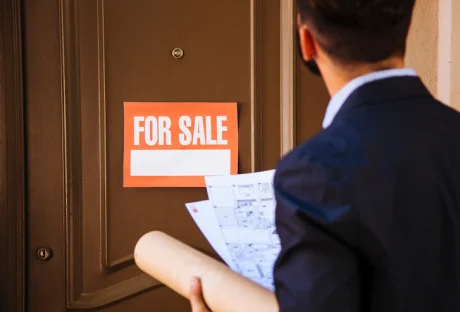For starters, the term “the best” is a wide term. One could think of a quality that can sustain them as a solo agent. While others might think of lesser quality with a lot more quantity for a real estate team.
You will have to define what you best real estate seller leads for your real estate lead generation.
Social Media Real Estate Seller Leads
Social media is a great platform to generate real estate leads. These real estate leads will typically end up costing you less money per lead than other sources. The reason is simple.
These leads have a strong call to action in all sought of potential seller. They might be three years out. Or, looking to sell their home now and needing a real estate agent to help them now.
In short, these ads are like billboards right in front of you with a strong call to action.
Hence, it is important to have a good ability for the potential lead who was not even looking for information prior to seeing your ad. With just one click, they are on your home valuation landing page, giving you their contact information.
Cold Calling FSBO, Expired Listings, And Cancelled Listings
Real estate agents who specialize in cold calling are the toughest of the toughest real estate agents. The cost to dial these real estate leads is very inexpensive. However, the fight must be in the real estate agent to survive in this lead source.
They are going up against other extremely skilled real estate agents. The one who has mastered the scripts and rebuttals to win in the cold-calling arena.
Once you have mastered your expired listings scripts and rebuttals. For example, you need to book your appointment usually within one to two hours to be at their property fully ready to list it. If not, I assure you that other real estate agents will beat you out time after time.
Google Real Estate Seller Leads
When you are looking for seller leads online, Google offers one of the best ways to attract higher-quality leads.
A seller leads that first says, “I have a problem, and I need a solution, so I am going to google it”, has just increased their quality score. Then once they visit your real estate seller landing page and provide you with their valid contact information, you just got a lead most likely looking to sell their home if not now, in the nearing future.
Unlike social media, real estate sellers lead Google One had to think about it and seek it out.
Farming Real Estate Seller Leads
Why should you generate seller leads through farming is a great question. Your quality of lead will increase with constant branding of yourself or your team to your local community. Even though you are constantly in front of them, they are seeking you out as google seller leads do.
The reason why this one will increase in their quality score is that your farming has increased their ability to trust you.
Once the seller leads land on your landing page, they will be more likely to give you their valid contact information, unlike Google and social media. The quality score goes from Farming to google, to social media in this order from higher to lower.
TV, Radio, And Billboard Real Estate Seller Lead
When you generate seller leads from TV, Radio, and Billboards, you now are leveled up that much higher than even farming. Where farming is mainly local and can use a billboard too, TV and Radio can cover entire cities and counties.
Potential home seller leads are seeing you constantly and building celebrity status over time. The issue in most real estate markets is that the average successful real estate agent cannot afford these advertising platforms.
However, the ones who can crack into these sources commonly end up getting high-quality and quantity real estate leads. Commonly you find your top real estate teams doing their real estate lead generation this way.
Past Clients And Sphere Real Estate Seller Leads
If you are on a tighter budget but you still can afford to advertise and do a good amount of marketing to your past clients and sphere, this is a great source for a solo real estate agent. These without a question should be one of your highest quality real estate seller leads.
The reason why they are such an amazing source of real estate seller leads is that they already know you, like you, and trust you from your existing and prior relationships with them.
This is why it could be the number one real estate lead generation for solo agents.
Even though this is a scalable real estate lead generation method, it is not the wisest one to scale for a real estate team.
The last thing you want to do is spend all your money making another real estate all-star on your team with their past clients and sphere so they can just take your spending and walk away with all your strong efforts and financial investment into their database.
SEO For Real Estate – How To Master It
When it comes to generating real estate seller leads, SEO (Search Engine Optimization) can be a game-changer.
But how do you really master it and make it work for you?
What Is SEO For Real Estate?
First things first, at its core, SEO is the practice of getting your real estate website to show up higher in search engine results pages (SERPS) like Google when someone types in “sell my house,” “real estate agent near me,” or “best time to sell a home” and more traffic/leads come to whoever shows up higher.
Let’s face it, if someone is searching for something about selling a home, they probably need an agent!
So, let’s start there; how do you actually get started?
One of the very first things you should learn about when optimizing for search engines is keyword research. Essentially, you want to figure out what potential buyers are searching for online in your market.
Tools like Google Keyword Planner or a service like Ubersuggest will allow you to see the most searched terms in relation to real estate.
Once you have your list of keywords, use them naturally throughout your website on your blog, service pages, and image descriptions.
Develop Amazing Content
Now, just having the right keywords is not enough. Google rewards high-quality and relevant content. Start a blog and showcase your knowledge.
Write articles on the local real estate market, how to stage a home for sale, or things sellers can do to add value to their home before selling. Just ensure everything you write is informative and easy to read. Google likes that, and potential clients will, too!
Establish Yourself as an Expert
Links are important for SEO, too. The more high-quality sites that link to your website, the more likely you will be seen as a trusted authority by search engines.
Try to get backlinks from reputable real estate blogs, local news websites, or even other professionals in your field.
Local SEO is Important, Too
Local SEO is important for real estate agents. Most of your business comes from people in your geographic area, so optimizing for local searches is a no-brainer.
Ensure your Google My Business profile is complete and up to date with your Name, Address, and Phone Number (NAP). Also, positive reviews will help increase your authority in local search results.
Summarizing Up Your Real Estate Lead Generation Options
While there are several different ways to get real estate leads, there will commonly only be one wise selection that meets your unique personality to generate seller leads.
Plus, for some real estate agents, they will not be able to afford some of the platforms for real estate leads. This will leave them looking for different lead generation ideas for seller leads.
The bottom line is to choose what lead generation you can afford and stick to it. Then build a system around it and make sure you are always inspecting what you expect, so that you can scale it as much as possible.
Read Also:



























